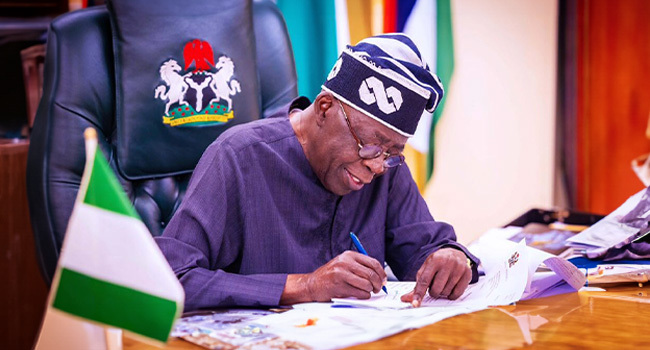What Tinubu’s 5% fuel tax means for Nigerians

March 31 tax filing Nigeria. President Bola Tinubu-led federal government unveils portal for national youth conference.
When Nigerians hear “new tax,” the first thought is usually: another burden on our pockets. But to truly understand the impact of President Bola Tinubu’s 5% fuel tax, we need to look beyond the filling station and examine how fuel prices ripple through the entire economy.
Fuel: The Invisible Thread in Daily Life
Fuel is not just about cars or motorcycles—it is the silent engine of Nigerian life. Generators power homes and businesses when electricity fails. Diesel keeps trucks moving, ensuring food and goods reach markets. Aviation fuel determines flight costs, and by extension, the price of air cargo.
This is why even a small percentage increase in fuel costs touches every sector, from agriculture to education. A 5% rise doesn’t end at the pump—it creeps into the cost of garri in Enugu, the price of spare parts in Aba, and the school fees in Ilorin.
How the Policy Works
The law, signed on June 26, 2025, mandates that from January 2026, all fossil fuel products—including petrol, diesel, and aviation fuel—will attract a 5% surcharge. Clean energy sources like solar, CNG, and household kerosene are exempt, a move intended to encourage Nigerians to embrace renewable alternatives.
What this means is simple: if petrol sells at ₦850 per litre, a consumer will now pay ₦892.50. That extra ₦42.50 may look small, but multiplied across millions of litres, it becomes enormous.
The Numbers Game
Nigeria consumed 18.75 billion litres of petrol in 2024, according to official data. If the tax had been in place then, the government would have earned nearly ₦796 billion from petrol alone. Add diesel and aviation fuel, and the figure could easily cross ₦1 trillion annually.
In a country struggling with debt, revenue shortages, and infrastructure gaps, this is a tempting figure for policymakers.
The Human Impact
But for citizens, the arithmetic plays out differently:
-
A Lagos bus driver who spends ₦50,000 weekly on petrol will now need ₦52,500. That ₦2,500 shortfall will be passed on to commuters in higher transport fares.
-
A small bakery in Kaduna running diesel generators to power ovens will see production costs rise, pushing bread prices upward.
-
A student in Nsukka, who uses a small generator to study at night, will pay more each semester just to keep the lights on.
This tax doesn’t discriminate—it affects the market woman, the artisan, the civil servant, and even the corporate executive.
Lessons From History and Elsewhere
Fuel levies are not new globally. Countries like South Africa and Ghana impose similar charges, often justifying them as tools for environmental sustainability. However, these countries typically have better-developed public transport or renewable alternatives to cushion the blow.
Nigeria, with its weak transport infrastructure and unreliable electricity supply, risks worsening inequality. Citizens may not easily “shift” to renewables when the upfront cost of solar panels or CNG conversion remains out of reach for most households.
The Promise and the Doubt
Government officials insist that the revenue will be earmarked for transport infrastructure and green energy projects. If properly managed, this could reduce logistics costs and inflation in the long run. But Nigeria’s history of broken promises leaves many skeptical.
The fear is that the tax will simply fatten government coffers without delivering visible relief. In an environment already bruised by subsidy removal and inflation, trust is fragile.
The Road Ahead
The 5% fuel tax is more than a fiscal tool; it is a test of governance and accountability. If the funds are transparently managed and channeled into visible projects—such as cheaper public buses, rail services, or solar access for rural communities—Nigerians may eventually see value.
But if mismanaged, the tax could become yet another entry in a long list of policies that deepen hardship without delivering hope.
For now, one thing is clear: whether you ride an okada in Kano, sell groceries in Ibadan, or run a hair salon in Benin, this tax will touch your life in ways big and small. And it will force Nigerians to ask, once again: when government takes from the people, will it ever give back in return?

